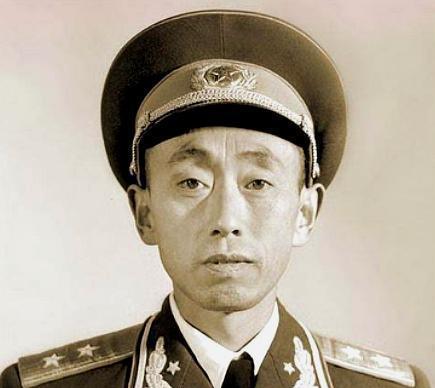General Zheng Weishan, a native of Macheng, Hubei Province, joined the revolution at the age of 12, officially joined the Red Army three years later, and became the political commissar of the 88th Division of the Red 30th Army before the age of 19. The 88th Division was the first-class main force of the Red Fourth Front, and the three regiments under its jurisdiction were all well-known honorary regiments in the whole army, of which the 263rd Regiment was the "Able to Attack the Steel Army"; the 265th Regiment was the "Night Tiger"; and the 268th Regiment was the "Steel Guarding Army". Being able to serve as a political commissar in such an honor-laden unit, Zheng Weishan's ability can be imagined.

Since then, he has led his troops to participate in a series of important battles and battles such as the strong crossing of the Jialing River, the Battle of Maogong and the Decisive Battle of Baizhangguan, and has made many military achievements. During this period, Zheng Weishan once crossed the snowy mountains and meadows three times, and twice led his troops to meet the brotherly Red Army division. After the three main forces of the Red Army met the division, he led his troops to follow Xu Shuai across the Yellow River and fought against the Majia Army, and fought many bloody battles with the enemy in Qilian Mountain, Nijiayingzi and Liyuankou. Later, after the defeat of the Western Expedition, he was alone, experienced hardships, and returned to Yan'an.
After the outbreak of the War of Resistance Against Japanese Aggression, Zheng Weishan served as the chief military instructor of the Second Branch of the Anti-Japanese War, and at that time, the Second Branch School set up a branch teaching point in Dafuzhuang Village, Chatou Town, and Zheng Weishan often came here to give lectures. Surrounded by mountains on three sides and surrounded by water, Dafuzhuang is known as the land of fish and rice, both reeds and rice fields. The unique conditions make this a must-have place for teaching in the sophomore school, and once there is an enemy, it can hide in the endless reeds, and can also fight guerrillas and enemy maneuvers on the mountain.
During this time, Zheng Weishan met Sun Jingbo, a rich woman who was studying in Dafuzhuang Village. Although Sun Jingbo was born in a rich family and was an only child, his thinking was relatively progressive and he longed for revolution. Because they have common aspirations and often exchange and learn, Zheng Weishan and Sun Jingbo quickly sparked a spark of love. After the completion of the students' study at the Second Branch of kang university, Sun Jingbo gave up continuing to study, followed Zheng Weishan to join the army and embarked on the revolutionary road, and began a life of mutual affection between the two.
After that, due to reasons such as war and work, the couple never had the opportunity to return to Dafuzhuang Village. On the eve of the Dragon Boat Festival in 1969, Zheng Weishan and his wife Sun Jingbo returned to Dafuzhuang Village, where they had been separated for thirty years. Zheng Weishan once lived and worked here for more than two years, and then harvested his love here, so he has a deep affection for Dafuzhuang Village, calling it his second hometown. At this time, Zheng Weishan's position was the commander of the Beijing Military Region, and although he was in a high position, he did not have a little shelf, and as soon as he got out of the car, he and the villagers opened up.
He walked from east to west, chatting with the villagers very lively, and the guards followed step by step out of their job duties. Zheng Weishan saw the situation and waved his hand at them and said: "This is the old revolutionary area, all of them are simple villagers, if it is not safe here, is there still a safe place?" Don't follow anymore, go to the reeds and dig up the bird's eggs!" "Being in a high position, but so approachable, the villagers are very touched." Later, Zheng Weishan used his own salary to donate money to Dafuzhuang Village for many times, and did a lot of good things.
For more exciting content, come and follow Brother Tsubasa's history class